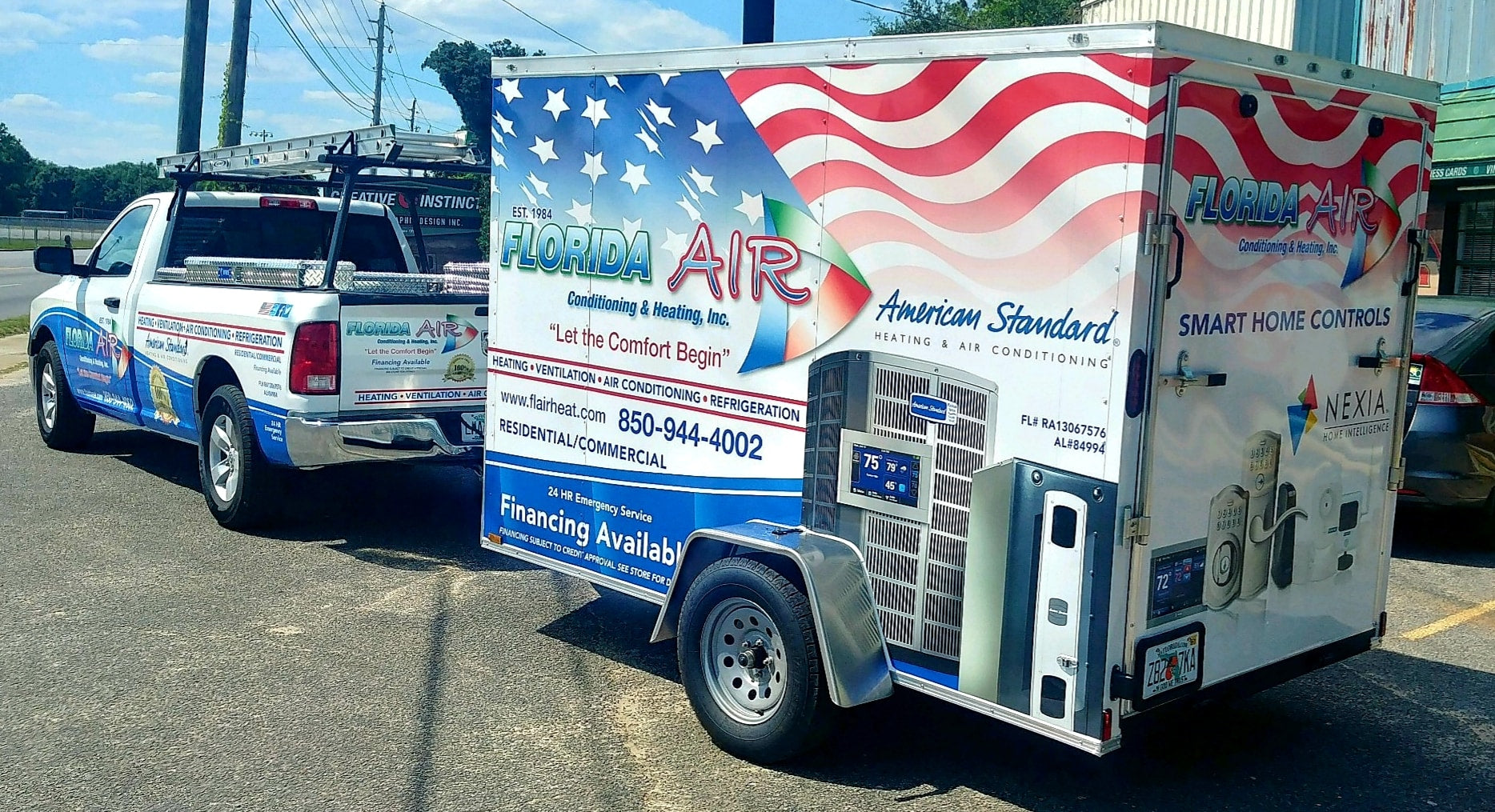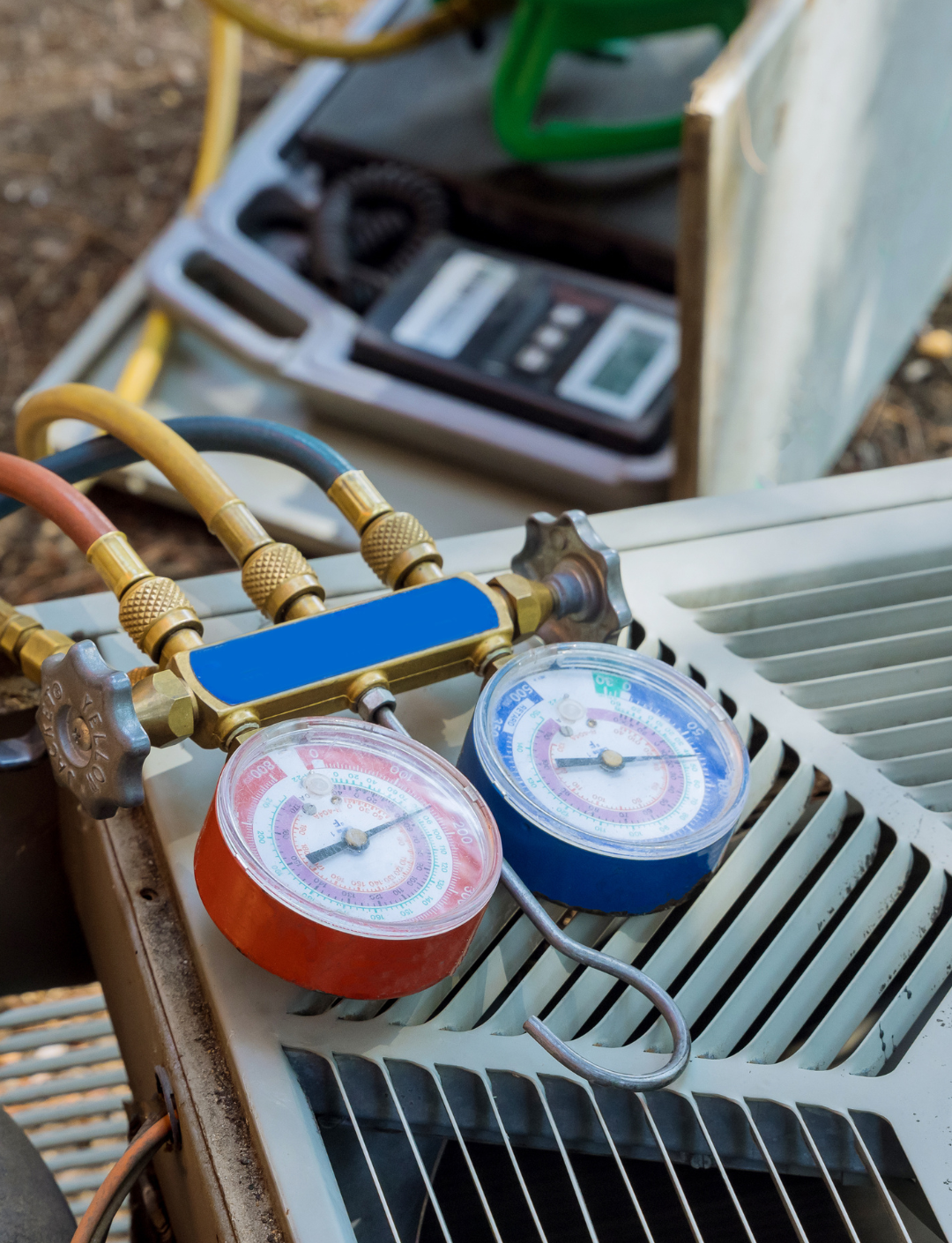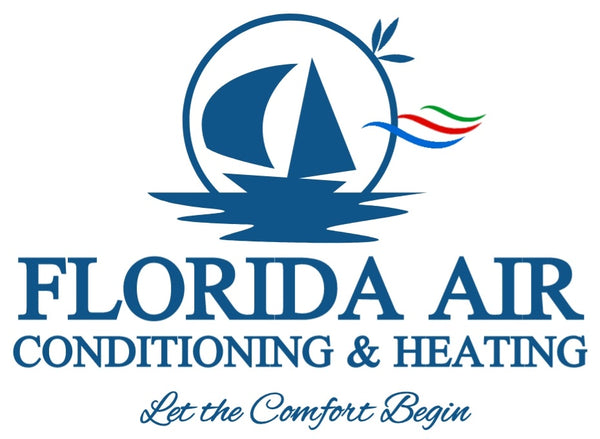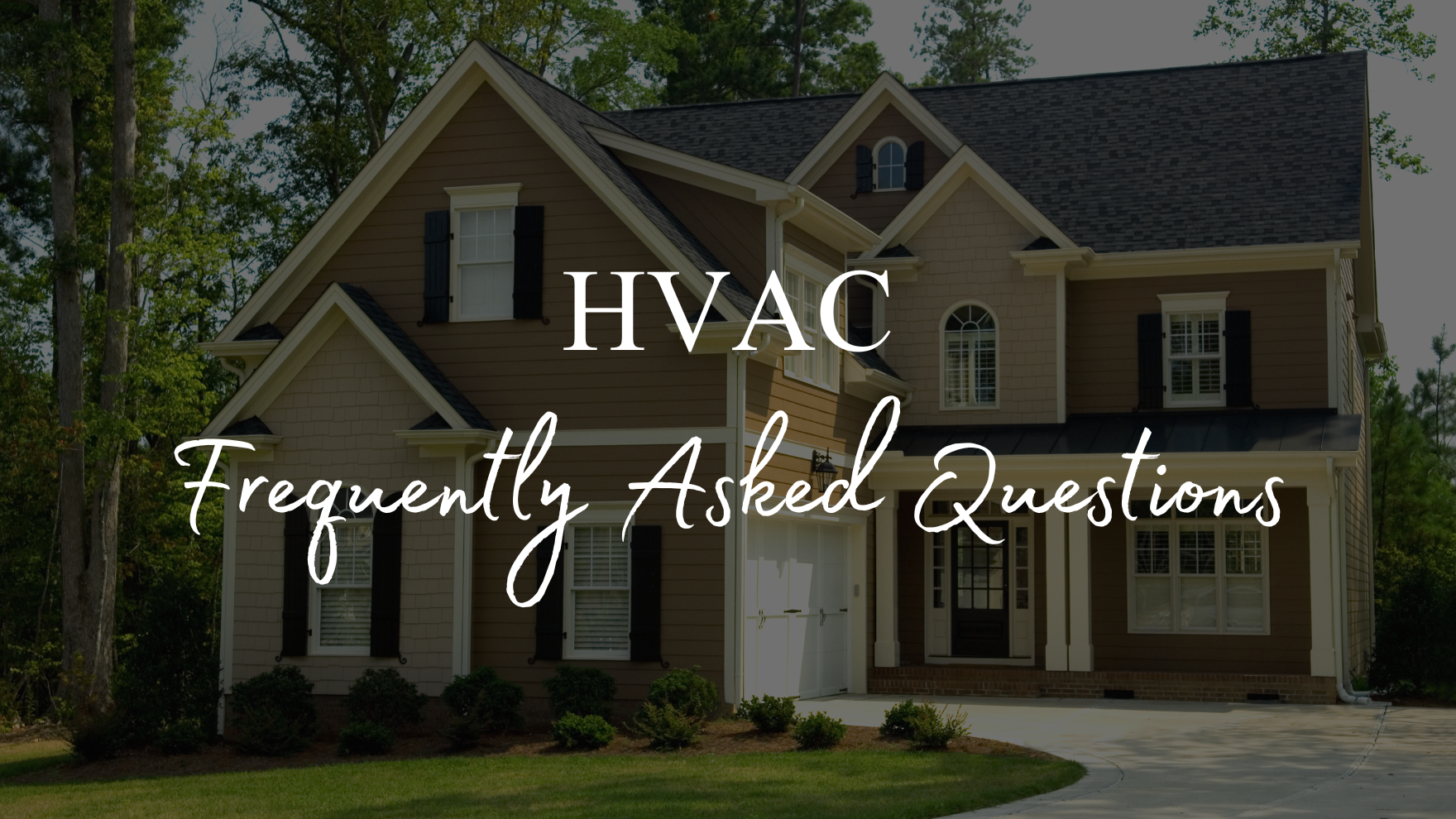
Heating Systems Replacement
Elevate your comfort with a heating system replacement. Our team guides you in selecting and installing the ideal energy-efficient heating solution for you. Enjoy improved warmth, lower energy bills, and reliable performance with our professional replacement services.
Why Choose Florida Air Conditioning & Heating for your Heating System Replacement?
Local Climate Expertise
We understand Northwest Florida's unique heating needs, from rural to downtown to the beaches.
Energy-Efficient Solutions
Cut your power bills with the latest in high-efficiency heating technology.
Experienced Technicians
Our team is certified to install all major heating brands suited for Northwest Florida.
Customized Solutions
We'll help you choose the perfect heating system for you.
Competitive Pricing
Get the best value for your heating replacement, with flexible options available.
Benefits of Upgrading Your Heating System
-
Improved Comfort
Better temperature and humidity control for those damp, chilly days.
-
Lower Energy Costs
New, efficient systems can significantly reduce your heating expenses.
-
Better Air Quality
Modern systems filter out Northwest Florida's winter allergens more effectively.
-
Quieter Operation
Enjoy the sounds of nature, not your heating unit.
-
Increased Property Value
A new heating system is a selling point in the Gulf Coast real estate market.
Upgrade Your Comfort - Contact Us Today!
Don't suffer through another winter with an inefficient heating system. Contact us for expert heating replacement that will keep you warm for years to come.
Call us at (850) 944-4002 or message us in the web chat to schedule your heating system replacement consultation. Experience why we're the Gulf Coast's local and trusted choice for year-round comfort!

FREE SECOND OPINION
At Florida Air Conditioning & Heating, we offer Free Second Opinions to help you make the best decision for your home and budget.
Frequently Asked Questions About Heating Systems Replacement
-
When should I consider replacing my heating system instead of just repairing it?
You might want to replace your heating system when:
- It’s over 15-20 years old and showing signs of frequent breakdowns.
- Repair costs are mounting or parts are becoming hard to get.
- Efficiency has significantly dropped (leading to high utility bills).
- The system no longer provides consistent heating or has uneven performance.
- It uses outdated or non-environmentally friendly equipment or fuel.
-
What size heating system do I need when replacing?
Proper sizing is essential. We consider your home’s square footage, ceiling height, insulation level, number of windows and doors, layout, and local climate. Oversized units cycle too often and waste energy; undersized units can struggle to keep you warm. We perform a load calculation to choose the right capacity.
-
Will I need to replace or upgrade ductwork when installing a new system?
Not always, but sometimes yes. If your existing ductwork is leaky, undersized, poorly insulated, or incompatible with the new system’s airflow requirements, upgrades or replacements may be needed for optimal efficiency and comfort.
-
What are the benefits of replacing with a modern heating system?
Upgrading to a newer, more efficient model can bring:
- Lower heating bills due to higher efficiency (better AFUE, HSPF, etc.)
- More reliable heating, especially during cold snaps
- Improved indoor comfort (more even temperatures, quieter operation)
- Reduced maintenance and fewer repairs over time
- Potential rebates, incentives, or tax credits for high-efficiency units
-
How do I pick the right replacement heating system for my home?
Here are some things to look for:
- Match the system type to your climate and fuel availability (gas, electric, heat pump, etc.)
- Choose a system with proper efficiency ratings (AFUE, HSPF, etc.)
- Ensure the capacity is properly sized via load calculation
- Check contractor credentials, references, and past work
- Evaluate long-term operational costs (energy, maintenance), not just upfront price
Heating System Replacement: When It’s Time, What to Look For & How It Helps Your Home
Replacing a heating system isn’t something most homeowners think about often — until their unit starts struggling, failing, or costing more to run than it’s worth. But making the right choice about when to replace your heater, and what to replace it with, can improve comfort, lower energy costs, and give you peace of mind.
Here’s a complete guide to heating system replacement — especially for homes in the Northwest Florida region.
1. How Long Should a Heating System Last?
Heating systems like heat pumps and furnaces are built to be durable, but they don’t last forever. Typical life expectancies are:
- Heat pumps: about 10–15 years
- Traditional furnaces: 15–20 years
Homes near the coast or in humid climates — like NW Florida — can see systems wear out faster due to higher usage and environmental stress. If your system is older than a decade and hasn’t had regular maintenance, replacement should be strongly considered.
2. Clear Signs Your Heating System May Need Replacement
• Frequent Breakdowns
If you’re calling for repairs multiple times a year, those costs can quickly add up. Replacing an aging system often costs less over time than repeated repairs.
• High Energy Bills
Older or inefficient systems use more energy to heat your home. If your heating costs keep rising even when usage hasn’t changed, your system may be losing efficiency.
• Uneven Heating or Poor Performance
Rooms that stay cold, inconsistent temperatures, or systems that run constantly without delivering comfort all suggest a failing or under-performing unit.
• Loud or Unusual Noises
Banging, rattling, screeching, or other strange sounds can be signs of worn internal components that aren’t worth repairing on a system near the end of its lifespan.
• Excessive Dust, Odors, or Poor Air Quality
Older systems with deteriorating components or failing filters can lead to worse indoor air quality — which affects comfort and health.
3. Benefits of Upgrading Your Heating System
Better Efficiency & Lower Bills
Newer systems are significantly more efficient than older units — meaning more heat with less energy use. That often translates to lower monthly bills.
Improved Comfort
Modern heating systems deliver more consistent warmth, better airflow, and with some models, zoned comfort control for different parts of your home.
Advanced Features
Today’s systems offer features like smart thermostat compatibility, variable-speed blowers, and improved humidity control — all of which enhance comfort and convenience.
Fewer Repairs, Longer Life
A new system starts you with a clean slate — fewer breakdowns, newer components, and stronger manufacturer warranties to protect your investment.
4. Heat Pump vs. Furnace: Which Is Right for Your Home?
Many homeowners in Northwest Florida choose heat pumps because they:
- Heat and cool with one system
- Deliver efficient performance in mild winters
- Often cost less to operate than traditional furnaces
In colder climates, a furnace may be preferable — but here in the Pensacola region, high-efficiency heat pumps are often the best balance of comfort, cost savings, and year-round performance.
Your technician can help you choose the option that best fits your home, usage, and budget.
5. Financing, Rebates, & Long-Term Value
Many new heating systems qualify for:
- Manufacturer rebates
- Utility incentives
- Flexible financing options
These programs can significantly reduce upfront cost and help you upgrade sooner rather than later. Be sure to ask your installer about the latest offers.
7. Schedule Your Heating System Replacement Today
A new heating system means better comfort, improved efficiency, and peace of mind — especially during chilly nights or early-morning cool spells.
📞 Call Florida Air Conditioning & Heating at (850) 944-4002
Our Articles
View all-

How Freezing Weather Impacts HVAC Efficiency
Freezing weather may be rare in Florida, but when it happens, it can have a noticeable impact on HVAC efficiency. Systems that normally run smoothly in mild or warm conditions...
How Freezing Weather Impacts HVAC Efficiency
Freezing weather may be rare in Florida, but when it happens, it can have a noticeable impact on HVAC efficiency. Systems that normally run smoothly in mild or warm conditions...
-

Why Oversized HVAC Systems Waste Energy
Many Florida homeowners assume that a larger HVAC system will cool or heat their home faster and more efficiently. While that idea sounds logical, an oversized HVAC system often does...
Why Oversized HVAC Systems Waste Energy
Many Florida homeowners assume that a larger HVAC system will cool or heat their home faster and more efficiently. While that idea sounds logical, an oversized HVAC system often does...
-

Common HVAC Myths Florida Homeowners Believe
HVAC systems are essential for comfort in Florida homes, but there are many misconceptions about how they work and how to care for them. Believing common HVAC myths can lead...
Common HVAC Myths Florida Homeowners Believe
HVAC systems are essential for comfort in Florida homes, but there are many misconceptions about how they work and how to care for them. Believing common HVAC myths can lead...
-

Why HVAC Tune Ups Pay for Themselves
Many homeowners see HVAC tune ups as an extra expense, but in reality, regular maintenance is one of the smartest financial decisions you can make for your home. In Florida,...
Why HVAC Tune Ups Pay for Themselves
Many homeowners see HVAC tune ups as an extra expense, but in reality, regular maintenance is one of the smartest financial decisions you can make for your home. In Florida,...





